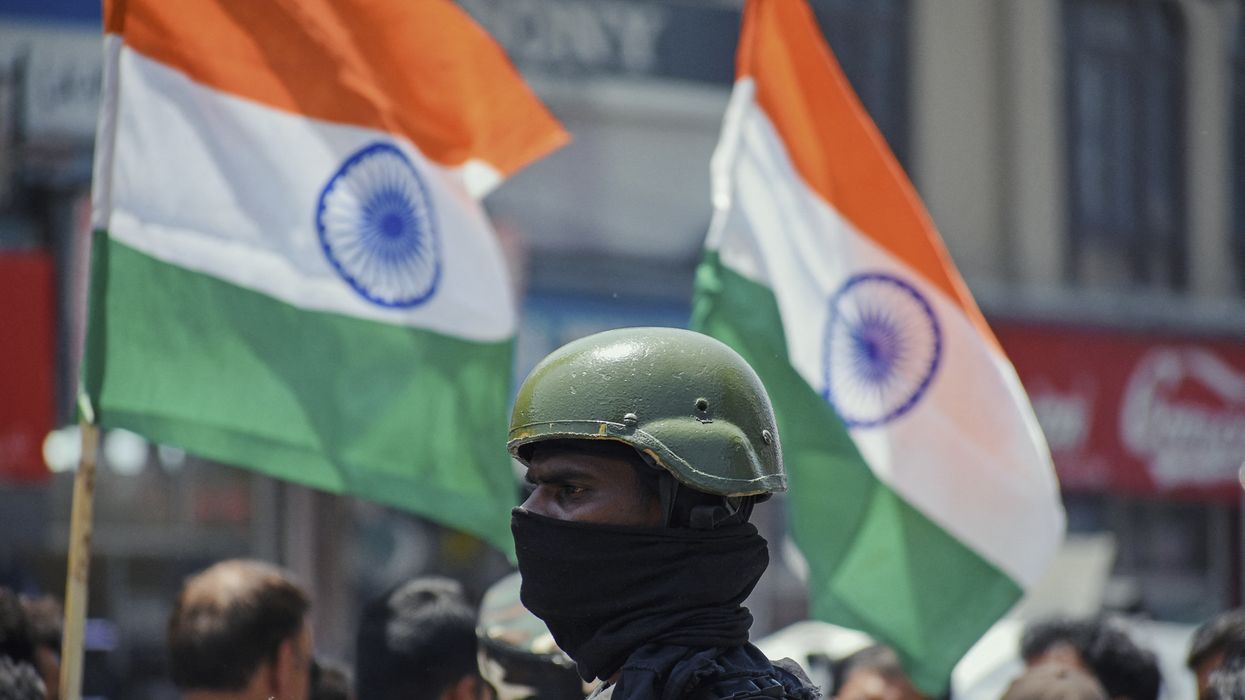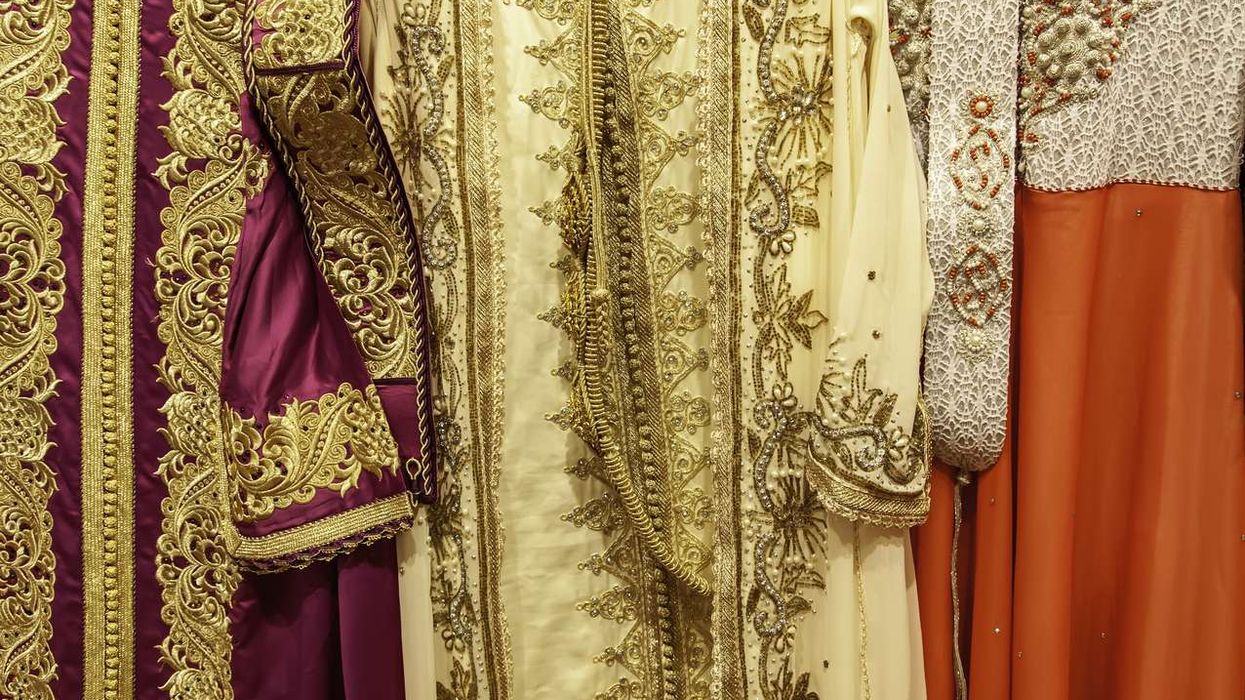After the dastardly killing of 25 Hindus by terrorists in Pahalgam, India delivered a devastating blow to Pakistan. It sent the message that India will not tolerate terrorist attacks anymore. However, India seems to have lost the propaganda war. In any battle, propaganda plays a huge role.
There are two interpretations of how the brief conflict was suddenly brought to a close. The Indian interpretation is that the Pakistani commanders urged India to stop the conflict and India agreed. This in itself raises some crucial questions. If the enemy is urging you to stop, why would you? Certainly the great Chanakya's response would be to take full advantage of the enemy's weakness. Did India get any cast-iron guarantees that Pakistan will stop state-sponsored terrorist attacks? Did India ask for the immediate release of Sudhir Kulbushan Yadav who is in a Pakistani jail for nine years on false spying charges?
The Pakistani interpretation is that it was President Trump who brought an end to the conflict. Indeed, Pakistan has proposed that Trump should be given a Nobel Peace Prize for stopping the conflict! On a world stage, it looks more plausible that Trump succeeded in putting pressure on India and he is trumpeting his success to the world.
I believe in India's version of events. However, India should show the world the proof by sharing the transcript of the conversation with the Pakistani generals. By not sharing with the world the proof of India's position, it is putting itself at a disadvantage. I for one cannot see any reason to keep the conversation a secret.
India has won every confrontation with Pakistan but at the negotiating table it has always lost out. Thus, the military gains have always been neutralised by Pakistan on the negotiating table. Here is a history of conflicts with Pakistan in which India gave away all the gains at the negotiating table.
In 1965, Pakistan launched Operation Gibraltar against India. It was designed to infiltrate soldiers into Jammu and Kashmir and cause an uprising. Under international pressure, the then PM Lal Bahadur Shastri went to Tashkent and signed a peace treaty with Pakistan. While there, he died mysteriously.
The treaty called upon both sides not to interfere in each other's affairs. It was not worth the paper it was written on.
In 1971, another war broke out between India and Pakistan. India won the war which resulted in the creation of Bangladesh. Even though India won the war, it failed to grasp any long-term gains. Indeed, Bangladesh was quick to ask the Indian army to leave once they had been liberated. The same Bangladesh today has turned against India and is persecuting Hindus.
Following the 1971 war, the then PM Indira Gandhi and Pakistan PM Bhutto signed a Shimla Agreement. Both nations committed to establish peaceful coexistence and mutual respect. Again, an agreement not worth the piece of paper it was written on. Indian forces had captured around 15,010 km² (5,795 sq mi) of land during the war but returned it after the Shimla Agreement as a gesture of goodwill.
In 1984, under the Prime Minister of Rajiv Gandhi, the Indian Army launched Operation Meghdoot, a military operation to seize control of the Siachen Glacier. This operation was a preemptive move as it was believed that Pakistan was also planning to take control of the glacier. In spite of the Pakistani attacks, India granted it Most Favoured Nation for trade status in 1996. However, Pakistan did not reciprocate. India withdrew its MFN status to Pakistan following the 2019 Pulwama attack.
On 24 December 1999, Indian Airlines Flight 814, commonly known as IC 814, was hijacked by five members of Harkat-ul-Mujahideen. A plan to send in commandos to neutralise terrorists did not materialise. The then PM Vajpayee agreed to release three terrorists in exchange for the release of 160 passengers.
Of the terrorists released, Omar Sheikh went on to finance one of the hijackers of the 9/11 attacks and the kidnap and murder of American journalist Daniel Pearl. Maulana Masood Azhar formed Jaish-e-Mohammed, a United Nations designated terrorist organisation. Maulana Masood was the mastermind behind the Parliament attacks in 2001, the 2016 attacks on the Indian Air Force base in Pathankot, and the killing of CRPF jawans in 2019 in Pulwama. He is responsible for hundreds of Indian deaths.
After the attack on the parliament in 2001, the then PM Vajpayee mobilised the army to attack Pakistan. Once again, due to international pressure, Vajpayee stopped the army.
LeT, the other terrorist organisation co-founded by Hafiz Saeed, is also responsible for many attacks on India. The blasts in Delhi in October 2005 which killed 44, train blasts in 2006 which killed over 200 people, and the 26/11 Mumbai attacks in November 2008 that claimed 166 lives. The outfit also masterminded the Uri army base attack killing 19 soldiers in September 2016.
For the first time under Prime Minister Modi, India took offensive action. On 29 September 2016, teams of Indian Army Para (Special Forces) crossed the Line of Control into Pakistani-administered Kashmir to attack targets up to a kilometre within territory held by Pakistan. Around 35 to 40 Pakistani soldiers were killed or injured.
Between May and July 1999, a war took place between India and Pakistan after the latter occupied the Indian territory of Kargil. India successfully dislodged the Pakistani occupiers. In the conflict, 527 Indian soldiers were killed and 1,363 wounded. India's Jat Regiment managed to occupy a strategically important mountain peak on the Pakistani side of the LoC near Dras, Point 5070, and subsequently named it Balwan.
In 2010, a bomb blast in a crowded bakery in the city of Pune killed 9 people and wounded 57. Through all this, cultural exchanges were going on between the two countries.
We often talk about how Prithviraj Chouhan defeated Mohammad Ghouri many times and let him go free. However, in 1192, when Ghouri attacked with a larger army, Prithviraj Chouhan was defeated and killed mercilessly.
It seems to me that in spite of wave after waves of attacks from Pakistan, we have given them the opportunity to come back. I am sure Prithviraj Chouhan must be watching from Heaven and thinking that at least they cannot blame him only anymore. “They are doing the same today,” he must think.
With the new bonhomie between Trump and Pakistan, India might have missed a golden opportunity of neutralising Pakistan — instead they have been given a chance to attack India again.
I am a great fan of Modiji. He has transformed India but my love for Hindu Dharma and Mother India compels me to speak out.
(Nitin Mehta is a writer and commentator on Indian culture and philosophy. He has contributed extensively to discussions on Hinduism, spirituality, and the role of Gurus in modern society. You can find more of his work at www.nitinmehta.co.uk.)



